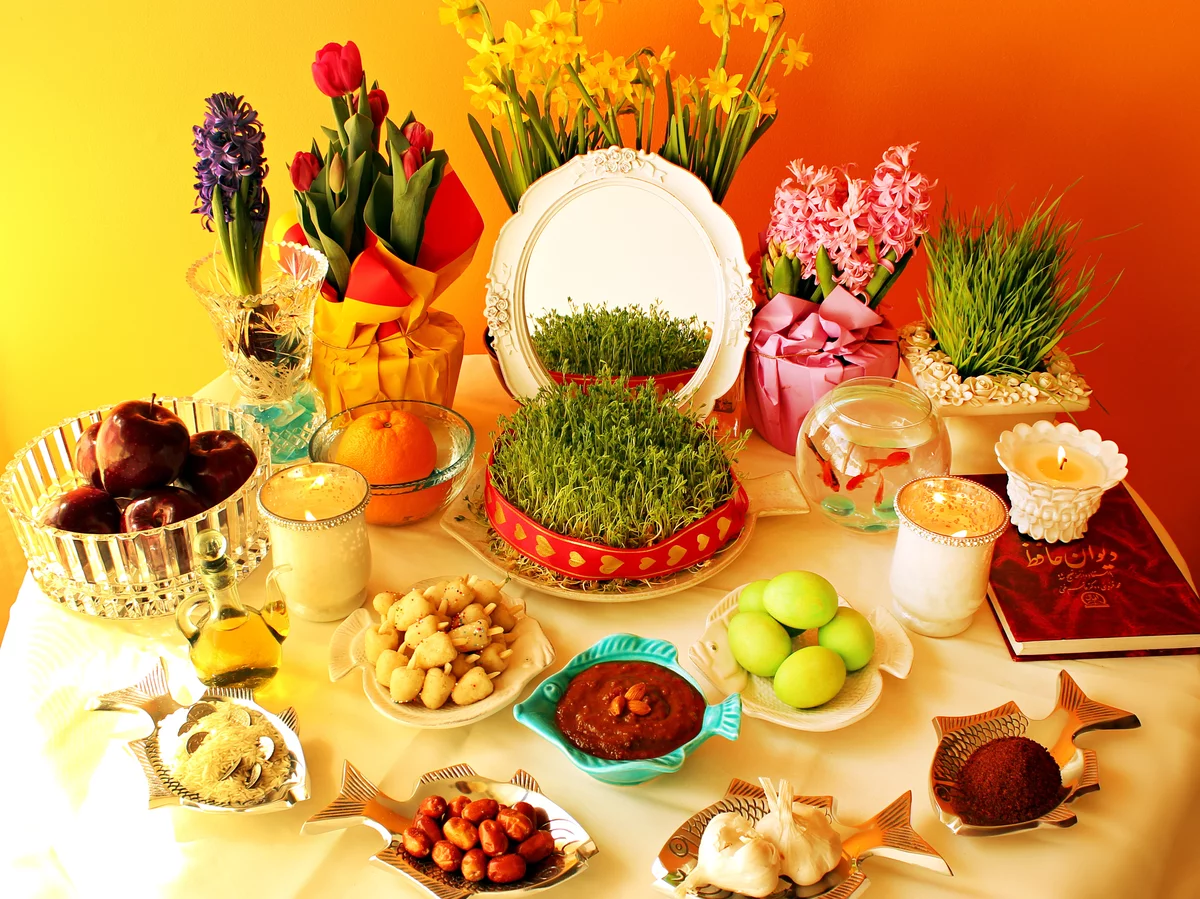The Significance and Traditions of Nowruz: Celebrating the Persian New Year
Nowruz is celebrated as the Persian New Year and marks the first day of spring and the beginning of the new year in the Iranian calendar. Nowruz has been celebrated for over 3,000 years and is an important cultural and traditional festival in Iran and other countries such as Afghanistan, Tajikistan, Uzbekistan, Azerbaijan, Kazakhstan, and Kyrgyzstan.
The celebration of Nowruz is rooted in ancient Zoroastrianism, a pre-Islamic religion that was widely practiced in Iran before the Arab conquest. Nowruz means “new day” in Persian, and it represents the renewal of nature and the triumph of light over darkness.
During Nowruz, people traditionally clean their homes, buy new clothes, and prepare special meals for their families. They also visit friends and family members, exchange gifts, and participate in cultural and religious events.
Overall, Nowruz is celebrated as a time of new beginnings, hope, and joy, and it reflects the rich cultural heritage and traditions of the Persian people.
Joyful Traditions: Celebrating Nowruz with Family and Friends
Nowruz is celebrated in various ways, depending on the country and cultural traditions. Here are some common ways to celebrate Nowruz:
- Spring cleaning: Before the start of Nowruz, people often clean their homes thoroughly to symbolize a fresh start and get rid of any negative energy or bad luck from the previous year.
- Haft-Seen table: People often decorate a special table, called the Haft-Seen, with seven symbolic items that begin with the Persian letter “sin” (س). These items usually include Sabzeh (wheat or lentil sprouts), Samanu (sweet pudding made from germinated wheat), Senjed (dried fruit from the lotus tree), Seer (garlic), Seeb (apple), Somagh (sumac), and Serkeh (vinegar).
- Visiting family and friends: During Nowruz, it’s common to visit family and friends to exchange gifts, share meals, and participate in cultural events.
- Eating special foods: People often prepare and enjoy special foods during Nowruz, such as Sabzi Polo Mahi (herb rice with fish), Kookoo Sabzi (herb and vegetable frittata), and Ash Reshteh (a traditional soup made with beans, noodles, and herbs).
- Lighting bonfires: In some countries, people light bonfires on the last Wednesday of the old year to symbolize burning away the past and welcoming the new year.
- Playing games and sports: People often play traditional games and sports during Nowruz, such as Buzkashi (a horseback game), Kite flying, and Ghashogh-Zani (making noise with pots and pans).
Overall, Nowruz is a time to celebrate renewal, new beginnings, and the triumph of light over darkness. People celebrate with joy and hope, and the festivities often continue for several days.
-After Content-

